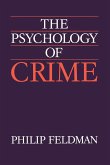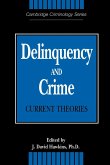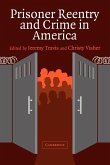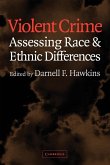This distinguishes ordinary and upperworld white-collar crime and presents reasons theoretically for believing that both have increased substantially in recent decades. Choosing White-Collar Crime also examines criminal decision making by white-collar criminals and their criminal careers. It argues that measures and approaches used in the war on street crime have greater promise for reducing white-collar crime. The book concludes with reasons for believing that problems of white-collar crime will continue unchecked increasingly in the global economy and calls for strengthened citizen movements to rein in the increases.
Hinweis: Dieser Artikel kann nur an eine deutsche Lieferadresse ausgeliefert werden.
Hinweis: Dieser Artikel kann nur an eine deutsche Lieferadresse ausgeliefert werden.








